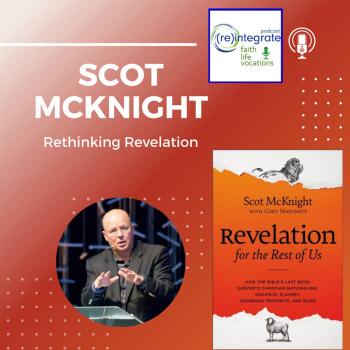“It ought to concern every person, because it’s a debasement of our common humanity. It ought to concern every community, because it tears at the social fabric. It ought to concern every business, because it distorts markets. It ought to concern every nation, because it endangers public health and fuels violence and organized crime. I’m talking about the injustice, the outrage, of human trafficking, which must be called by its true name—modern slavery.” – President Barack Obama, September 25, 2012
I was one of 73,000 Americans that signed a petition initiated by the International Justice Mission asking President Obama to take action to combat modern slavery. In response, he signed an Executive Order on one of the four requests that we made to him in that petition (officially outlining prohibitions on trafficking-related activities that will apply to all federal contractors and subcontractors). This is a great start to a concerted effort to ending this terrible sin against humanity and the God who created humanity in his image.
As my friend Gene Tibbs wrote on Facebook,
“‘Slavery’ (today) often called ‘human trafficking’ has now (finally) received executive (mainstream) attention and hopefully executive resources to combat it. For those who’ve faced trafficking and for those who combat it, we are better off–at least, so far. Let’s see if this continues until 4 years from now. Let’s keep the pressure on. Amen.
[image source_type=”attachment_id” source_value=”2735″ align=”right” width=”208″ autoHeight=”true” link=”http://thingsbright.com/wp-content/uploads/2012/06/human-trafficking.jpg” linkTarget=”_blank”] There are two key initiatives of the President’s Executive Order that needs to be highlighted as it concerns the way Christians are to reintegrate faith with their work. As President Obama said, “[Human Trafficking] ought to concern every community, because it tears at the social fabric. It ought to concern every business, because it distorts markets.”
- “The creation of the Global Business Coalition Against Trafficking, a business-to-business network that will mobilize its members to fight trafficking, including through the identification and development of best practices.”
- “The launch of the Made in a Free World initiative to help buyers and suppliers identify and eliminate supply chain vulnerabilities, and demonstrate their commitment to combating human trafficking.”
In the world that ought to be, business would be done with ultimate concern for the common good. Profit would come as customers choose which products meet their needs the best and do so with no harm to our fellow man or the creation over which God has put us in charge.
But in a fallen world, the bottom line often pushes these concerns out to the periphery. Shareholders take precedence over doing business for the benefit of human flourishing (what the Bible calls “shalom”).
So, business leaders turn a blind eye to the possibility that their supply chain might be littered with the lives of humans in the bondage of slavery.
But not so with the Christian businessperson! If you are a believer in Christ, you are called to doing business the way it ought to be done. You are called to do your due diligence in investigating whether or not slaves are involved in the production of your products. Your business practices should convey these high standards to others in your sphere of influence.
Also, as a Christian member of society, you need to investigate if human trafficking is occurring in your own community. Human trafficking is an epidemic not only in foreign lands but right here in the United States. As Nicholas Kristoff writes (“What About American Girls Sold on the Streets?”),
“In the United States we see girls all the time who have been trafficked — and our hearts harden. The problem is that these girls aren’t locked in cages. Rather, they’re often runaways out on the street wearing short skirts or busting out of low-cut tops, and many Americans perceive them not as trafficking victims but as miscreants who have chosen their way of life. So even when they’re 14 years old, we often arrest and prosecute them — even as the trafficker goes free.”
It’s time for Christians to be in the forefront to help these young ladies. Human Sex Trafficking is totally opposed to the goodness of God’s Kingdom, and it is happening right under our noses. Don’t believe it? In my home state of Ohio, a state commission “concluded that more than 1,000 American-born children are each year forced into sex trafficking” (“Sex trafficking in Ohio: Attorney General releases detailed report from Cleveland to Cincinnati to Toledo,” Cleveland Plain Dealer, August 08, 2012).
So here is the question: What are you and your business doing about human trafficking?
[styled_table width=”200px”]THERE ARE MORE THAN 30 MILLION SLAVES IN THE WORLD TODAY, MORE THAN AT ANY OTHER POINT IN HUMAN HISTORY.[/styled_table] For more on what you can do, check out these resources:
- Polaris Project comprehensively combats human trafficking and modern-day slavery with the National Human Trafficking Hotline, Clinical Social Services, Training and Technical Assistance, and Policy Advocacy.
- International Justice Mission is a Christian-led human rights agency that brings rescue to victims of slavery, sexual exploitation and other forms of violent oppression. IJM lawyers, investigators and aftercare professionals work with local officials to secure immediate victim rescue and aftercare, to prosecute perpetrators and to ensure that public justice systems – police, courts and laws – effectively protect the poor.
- Not For Sale – Through international work on the ground and in mainstream supply chains, Not For Sale proactively targets the root causes of slavery while engaging and equipping the movement for freedom.
- World Relief Anti-Trafficking helped launch the Faith Alliance Against Slavery and Trafficking (FAAST), a group of Christian organizations which collaborate to design programs, curriculum and training to prevent trafficking and help survivors to rebuild their lives.
- Dalit Freedom Network is a human rights, non-government Christian organization representing a vast network of justice-minded, modern-day abolitionists committed to bringing freedom to history’s longest standing oppressed people group – the Dalit people in India.
- The Initiative Against Sexual Trafficking is a project of The Salvation Army National Headquarters, helping to create and equip the movement for the Abolition of sexual trafficking and commercial sexual exploitation.
- Free2Work provides consumers with information on how products relate to modern-day slavery. Through the site you can learn how your favorite brands are working to address forced and child labor.
- Steve Feazel, a videographer and retired pastor, is working on a documentary called Shadow on the Heartland, seeks to shed light on this tragedy of Ohio losing 1,100 young children to sexual trafficking each year.
- Here in my hometown of Canton (Stark County in Ohio), we have PATHS – Partners Against Trafficking Humans Stark.
Image by Questa Durron. Used with permission. Sourced via Flickr.
 Note: This post is part of a community link-up with TheHighCalling.org on the topic of Social Justice at Work. There are lots of other great stories and ideas from other members of the community as we explore this idea of reintegrating faith and work.
Note: This post is part of a community link-up with TheHighCalling.org on the topic of Social Justice at Work. There are lots of other great stories and ideas from other members of the community as we explore this idea of reintegrating faith and work.













